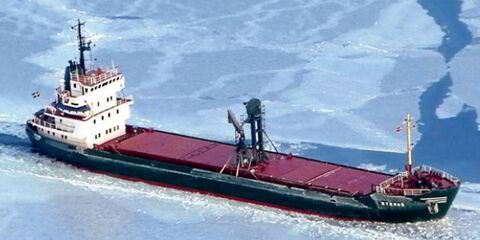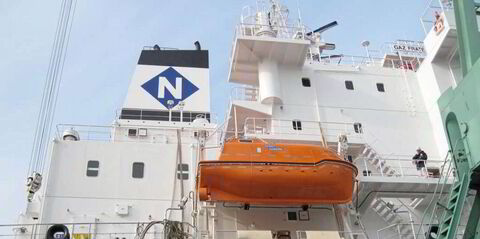Two more recent cases of nickel ore cargo liquefaction have come to light since the 57,000-dwt Emerald Star (built 2010) sank along with 10 of its 26 crew members last week, adding to concerns that another tragedy could be imminent as the trade to China reaches its seasonal peak.
In both the newly reported cases, fortunately the vessels survived the liquefaction problems and there was no casualty or loss of life.
The incidents have only now emerged because the UK protection-and-indemnity club revealed the cases in a note to members following the sinking of the Emerald Star, which went down off the Philippines last week with a cargo of nickel ore onboard.
The UK Club’s notification would seem to verify market talk that liquefaction cases are only reported when there is a serious casualty but there are many more "close calls" that never come to light. It also raises the question over whether other insurers have cases on their books that they have not reported.
Although the UK Club points out cargo liquefaction has not yet been determined as the cause of the Emerald Star sinking, there are concerns because of a long history of losses linked to nickel ore in the dry bulk industry.
The UK Club said it is dealing with two recorded cases of liquefaction involving ships that had loaded at Surigao in the Philippines and were heading for China.
In one of the cases, the crew discovered a two-degree list and adjusted speed and course to reduce vibration and the impact of weather.
The ship managed to make it into port, where it was discovered three out of five cargo holds had developed cargo liquefaction.
"There were tide marks on both sides of the hold, and the master reported that cargo had been flowing from side to side like wet cement in synchronism with the ship’s rolling," the UK Club said.
In the second incident, a vessel discovered liquefaction "in at least one of the holds" and was forced to seek a port of refuge.
As nickel ore cargoes liquefy, they destabilise the ship because of the free surface effect of water moving within the cargo holds.
The UK Club identified the shippers involved in its two reported incidents as Century Park Corp and Platinum Group Metals Corp, although it would not name the vessels.
A spokesperson for the UK Club says he has concerns because the late autumn is traditionally the peak season for South Asian nickel ore exports to China.
October also marks the onset of the South Asian rainy season and, with nickel ore stocks often left exposed to the elements, it increases the risk of the cargo taking on excess moisture.


